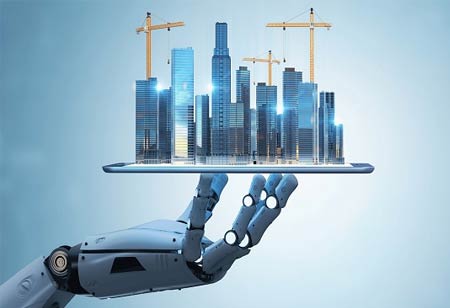Thank you for Subscribing to Construction Business Review Weekly Brief
Specials
- MEP Canada
- Kitchen and Bath
- Decking Canada
- Architectural Glass Europe
- MEP APAC
- Construction Saudi Arabia
- German Apartment and Condominium Contractors
- Construction Law APAC
- Outdoor Construction
- Foundation Construction Canada
- Building Sealing Solutions Europe
- Apartment and Condominium Contractors Canada
- Cold Storage Construction APAC
- Precast Concrete Europe
- Construction Staffing Europe
- Pre-Construction Services
- Flooring System APAC
- Scaffolding Canada
- Swimming Pool Construction Canada
- Construction Management Canada
- Dummy
- Building Restoration and Maintenance Canada
- Residential Construction
- Concrete Canada
- Construction Cladding Europe
- Construction Cladding APAC
- Concretes, Aggregates and Construction Materials APAC
- Concretes, Aggregates and Construction Materials Europe
- Commercial Contractors Europe
- Commercial Contractors APAC
- Cold Storage Construction Canada
- Flooring Systems Europe
- Construction Management APAC
- Landscaping Canada
- Construction Coating Europe
- Construction Tech Startups Europe
- Insulation Services Europe
- Mechanical Contractor Canada
- Mould Remediation and Testing Europe
- Swimming Pool Construction APAC
- Construction Engineering Services
- Mechanical Electrical and Plumbing
- Roofing Systems Europe
- Architectural Glass APAC
- Startups APAC
- Forensic and Owners Representative
- Flooring System
- Waterproofing APAC
- Wall Systems
- Safety and Compliance Europe
- Construction Bidding and Auctions
- Modular and Prefab Construction
- Architectural Glass
- Construction MENA
- Construction Demolition and Recycling Europe
- Modular Construction Europe
- Construction Interiors
- Steel Building APAC
- HVAC
- Doors and windows
- Modular Construction APAC
- Insulation, Coating and Waterproofing
- Building Information Modeling APAC
- Sustainable Construction APAC
- Building Restoration and Maintenance
- Commercial Contractors
- Specialty Construction
- Construction Engineering Canada
- Construction Engineering MENA
- Modular Construction Canada
- Roofing and Siding Systems
- Construction Latam
- Workforce Management and Staffing
- Roofing Systems APAC
- Construction Consulting
- Steel Building Europe
- Construction Demolition and Recycling APAC
- Safety and Compliance APAC
- Concretes, Aggregates and Materials
- Construction Cladding
Modular Construction: The Sustainable, Technological, and Efficient Future of Commercial Building
As the global business landscape continues to transform, the commercial construction sector adapts to various emerging trends.

By
Construction Business Review | Friday, July 28, 2023
Stay ahead of the industry with exclusive feature stories on the top companies, expert insights and the latest news delivered straight to your inbox. Subscribe today.
Modular construction leads the commercial construction industry with sustainability, technology integration, swift construction, flexibility, and cost-effectiveness, driving towards an efficient and sustainable future.
FREMONT, CA: As the global business landscape continues to transform, the commercial construction sector adapts to various emerging trends, ranging from sustainability initiatives to advancements in technology. These dynamic changes are essential, from sustainability initiatives to advancements in technology. They are essential to cater to the evolving needs of businesses and communities. Here, modular construction stands out as an ideal solution to address the demands effectively.
Sustainable Construction
In the modern construction industry, sustainability has become an imperative rather than an option. With businesses and communities increasingly prioritising environmental consciousness, construction organisations stay abreast of the growing demand. Modular construction emerges as an eco-friendly alternative to conventional building methods. The products are purposefully designed with sustainability at the forefront, employing efficient production techniques that minimise waste ad lower energy consumption. Moreover, modular buildings utilise recycled materials and boast easy disassembly and repurposing capabilities.
Advanced Technology
The rapid evolution of technology is reshaping various aspects of lifestyle, work, and construction practices. Within the commercial construction sector, there is a strong inclination towards embracing technological advancements to enhance efficiency and minimise expenses. Modular construction leverages building information modelling (BIM) to generate detailed 3D models of buildings prior to construction, facilitating improved communication and collaboration among teams.





